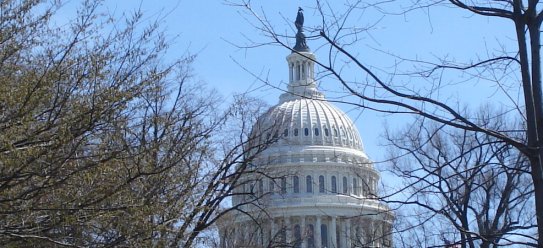Investing for the Future: Federal Science Funding and its Benefits for Communities
This post contributed by Terence Houston, ESA Science Policy Analyst
A primary role of policymakers is to serve as the voice of the community they represent. At the federal level, hearing elected officials speak on the House or Senate floor or at a town hall, is one channel citizens use to stay engaged in the issues of the day. Wouldn’t it be wonderful if lawmakers could more often use these forums to tout what the latest scientific and technological advancements are contributing to their community? The approaching end of the current political season and onset of a new Congress will likely call for those in the scientific community to work hard to underscore the importance of federal programs that fund scientific research.
Particularly in this economy, lawmakers are focused on a multitude of other “bread and butter” concerns that, for them, take priority over issues in science or the environment. Still, while federal funding for science programs may not have an instant impact towards lowering our nation’s unemployment numbers, the benefits of science investments often prove widespread and long-lasting. Scientific research helps us cure diseases, advance technology and better understand how to manage our natural resources.
 It also has agricultural and economic benefits, as demonstrated by 2010 Graduate Student Policy Award (GSPA) winner Alexis Erwin during the most recent “The Ecologist Goes to Washington” podcast. In one example, Erwin notes that studies of plant and insect interactions within the soil can also show farmers how their yields might be compromised or enhanced in a given crop year. As part of the GSPA, Erwin flew to Washington, DC and participated in meetings with lawmakers, offering them a personal perspective on the importance of federal agencies such as the National Science Foundation and the U.S. Department of Agriculture’s competitive grants program.
It also has agricultural and economic benefits, as demonstrated by 2010 Graduate Student Policy Award (GSPA) winner Alexis Erwin during the most recent “The Ecologist Goes to Washington” podcast. In one example, Erwin notes that studies of plant and insect interactions within the soil can also show farmers how their yields might be compromised or enhanced in a given crop year. As part of the GSPA, Erwin flew to Washington, DC and participated in meetings with lawmakers, offering them a personal perspective on the importance of federal agencies such as the National Science Foundation and the U.S. Department of Agriculture’s competitive grants program.
Attempts by some lawmakers to slash funding for science programs can certainly be rooted in differences in ideology. However, more often, it stems from a basic lack of understanding of what science has done to foster advancements in their own community or how many of their constituents depend on the continuation of federal support for certain programs. Also, the political price for slashing science funding is not nearly as risky as eliminating programs that have a much “louder” constituency.
While it is commonplace for elected officials to hear from community leaders on the importance of issues such as housing, education, transportation and infrastructural investment, they are not as regularly briefed on research and scientific advancements being made right in their own backyard. This needs to change. U.S. Representatives of all stripes generally will give (at the very least) an audience to their constituents, their voters, so Congressional visits such as Erwin’s need not be out-of-the-norm.
Thankfully, investments in general scientific research to date has enjoyed strong bipartisan support. The most recently enacted America COMPETES Act was passed with overwhelming support by a Democratic Congress and was signed into law by a Republican president in 2007.
Nonetheless, regardless of the outcome of the upcoming November elections, the 112th Congress will begin with a large group of freshman lawmakers, and many (if not most) will lack a concrete understanding of the role the federal government plays in the advancement of scientific research. The House Science and Technology Committee will also have a new chairman for the first time in four years who will undoubtedly bring a new perspective and unique approach to science policy. The newly elected class of fresh faces and minds will be novices not only in science policy, but the federal legislative process itself.
Undoubtedly, each of these freshman representatives and Senators will arrive in January with their own set of agendas, based largely on what they’ve been promising their constituents this fall. They will also be learning the ropes of navigating these ideas through legislative initiatives, seeking issues to champion and accomplishments they can tout as beneficial for their districts.
Consequently, it is perhaps more important than ever that scientists in communities across the nation are active in ensuring that, when the incoming class of Congress meets to vote on budget and appropriations allocations for science programs, they are mindful of the important role scientific research plays in the communities they serve.
